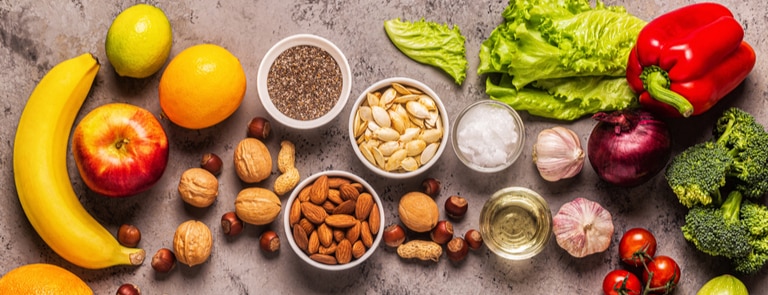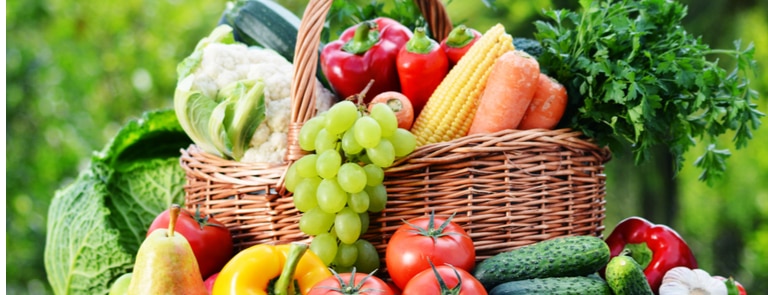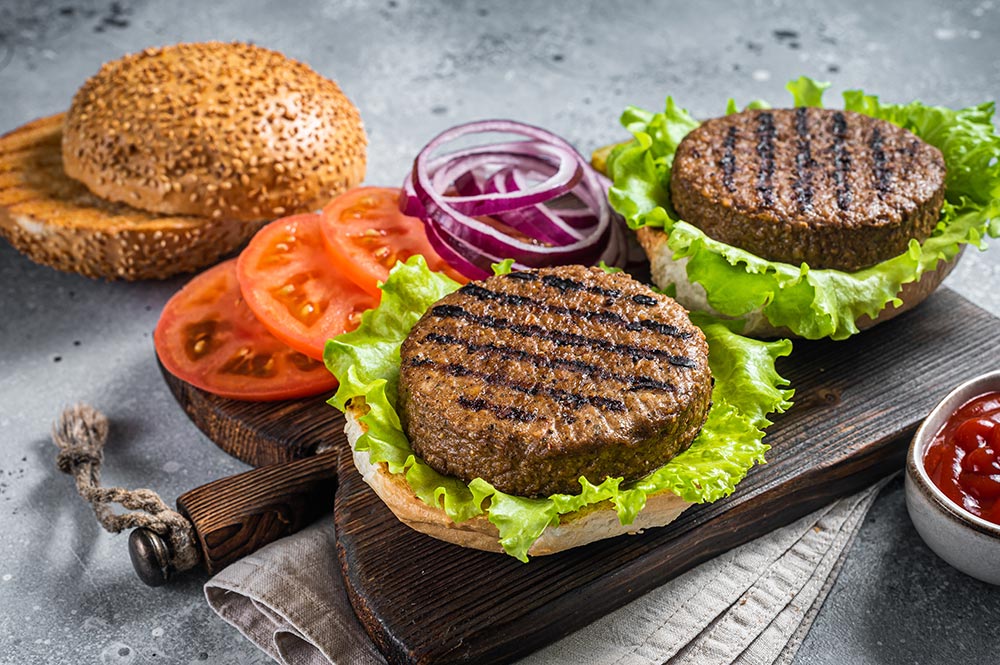Are you looking for a way to shed extra pounds without feeling hungry or deprived? You might have heard that a vegan diet can help with weight loss, but does it really work for everyone?
Imagine enjoying tasty meals filled with plants while watching the scale move in the right direction. You’ll discover how a vegan diet could impact your weight, what to watch out for, and simple tips to make it work for you.
Keep reading to find out if going vegan is the key to reaching your weight loss goals.

How Vegan Diets Influence Weight
Vegan diets focus on eating plant-based foods. They remove meat, dairy, and eggs from meals.
This type of diet can change how many calories and nutrients you get. These changes can affect your weight.
Lower Calorie Intake
Plant foods often have fewer calories than animal products. Eating plants can help you eat less energy overall.
Lower calorie intake can lead to weight loss if you do not eat extra calories from other sources.
Higher Fiber Content
Vegan diets include many fruits, vegetables, and whole grains. These foods have high fiber content.
Fiber helps you feel full longer. It slows digestion and reduces hunger, which can lower calorie intake.
Reduced Fat Consumption
Animal products often contain more saturated fat. Vegan diets usually have less fat, especially unhealthy fat.
Lower fat intake can reduce calorie intake and improve heart health, supporting healthy weight management.
Scientific Evidence On Weight Loss
Many people wonder if a vegan diet can help with weight loss. Scientific studies have looked at this question closely.
This section reviews research on how vegan diets affect weight and body fat.
Results From Clinical Studies
Clinical studies show that people on vegan diets often lose more weight than those on other diets. These diets tend to be lower in calories and fat.
One study found that participants on a vegan diet lost an average of 5 pounds in 12 weeks without counting calories.
- Vegan diets reduce calorie intake naturally
- High fiber content helps feel full longer
- Lower fat intake supports fat loss
Long-term Weight Management
Long-term studies show that people who stay on vegan diets keep off weight better than some other diet groups. This may be due to healthy eating habits.
Sticking to a vegan diet helps maintain lower body weight over years. It also lowers the risk of obesity-related diseases.
- Improves metabolism over time
- Promotes healthier food choices
- Supports steady, sustainable weight loss
Comparisons With Other Diets
Research compares vegan diets with low-carb and Mediterranean diets for weight loss. Vegan diets often result in equal or greater weight loss.
Some diets focus on protein or fat, but vegan diets emphasize plant foods rich in nutrients and fiber.
| Diet Type | Average Weight Loss | Key Features |
|---|---|---|
| Vegan Diet | 4-6 pounds in 12 weeks | Plant-based, high fiber, low fat |
| Low-Carb Diet | 3-5 pounds in 12 weeks | Low carbs, higher protein and fat |
| Mediterranean Diet | 3-5 pounds in 12 weeks | Healthy fats, whole grains, moderate protein |
Benefits Beyond Weight Loss
Choosing a vegan diet can help you lose weight, but it also offers other health benefits. These advantages support your overall well-being.
Eating plant-based foods affects many parts of your body in positive ways. Let’s explore some key benefits beyond just losing pounds.
Improved Metabolism
A vegan diet often includes more fruits, vegetables, and whole grains. These foods are rich in fiber and nutrients that can boost your metabolism.
Higher fiber intake helps your body burn calories more efficiently. It also supports steady energy levels throughout the day.
Better Heart Health
Plant-based diets are low in saturated fat and cholesterol. This helps reduce the risk of heart disease and keeps your blood vessels healthy.
Eating more vegetables and nuts can lower blood pressure and improve cholesterol levels. These changes protect your heart over time.
- Lower bad cholesterol (LDL)
- Reduced blood pressure
- Improved blood vessel function
Enhanced Digestion
Vegan diets include more fiber, which supports healthy digestion. Fiber helps move food smoothly through your intestines.
Better digestion means less bloating and constipation. It also promotes a healthy balance of gut bacteria, which is important for your immune system.

Common Challenges With Vegan Diets
Switching to a vegan diet can help with weight loss. Many people find it healthy and satisfying.
Still, some challenges can make it hard to stay on track. Knowing these helps you plan better.
Nutrient Deficiencies To Watch
Vegan diets may lack some important nutrients. These include vitamin B12, iron, and omega-3 fats.
Without these nutrients, you might feel tired or weak. You should find good plant-based sources or supplements.
- Vitamin B12: Found in fortified foods or supplements
- Iron: Found in beans, lentils, spinach, and fortified cereals
- Omega-3 fats: Found in flaxseeds, chia seeds, and walnuts
- Calcium: Found in fortified plant milk and leafy greens
- Protein: Found in tofu, tempeh, beans, and nuts
Overcoming Social And Practical Hurdles
Eating vegan can be tough in social settings like parties or restaurants. Not all places offer vegan options.
Planning ahead helps. Bring snacks or suggest restaurants with vegan meals. Explain your diet to friends and family.
- Carry vegan snacks for emergencies
- Research menus before eating out
- Talk openly about your choices with others
- Join vegan groups for support and ideas
Maintaining Balanced Meals
It is easy to eat only processed vegan foods. These can be high in sugar and fat and low in nutrients.
Focus on whole foods like vegetables, fruits, grains, and legumes. Plan meals with proteins, carbs, and fats.
- Include a variety of colorful vegetables
- Choose whole grains like brown rice and quinoa
- Add protein from beans, tofu, or nuts
- Use healthy fats like avocado and olive oil
- Drink plenty of water
Tips For Effective Weight Loss On Vegan Diet
Following a vegan diet can support weight loss if done right. Choosing the right foods and habits matters most.
These tips help you eat well and lose weight safely on a vegan plan.
Choosing Whole Foods
Whole foods have more nutrients and fiber than processed ones. They keep you full longer and help control hunger.
Pick fruits, vegetables, beans, nuts, and whole grains. Avoid foods with added sugars and unhealthy fats.
- Eat fresh vegetables and fruits daily
- Choose brown rice or quinoa over white rice
- Include beans and lentils for protein
- Snack on nuts and seeds in small amounts
Meal Planning Strategies
Plan meals ahead to avoid last-minute unhealthy choices. Balanced meals help keep energy steady and cravings low.
Include protein, fiber, and healthy fats in each meal. Drink water and eat smaller portions more often.
- Prepare meals for the week on weekends
- Use a plate with half vegetables, quarter protein, quarter grains
- Cook large batches of soups or stews
- Carry healthy snacks like fruit or nuts
Incorporating Physical Activity
Exercise helps burn calories and build muscle. It supports weight loss and improves overall health.
Choose activities you enjoy and can do regularly. Mix cardio, strength, and flexibility exercises for best results.
- Walk, run, or bike for 30 minutes daily
- Try yoga or stretching to improve flexibility
- Use bodyweight exercises like squats and push-ups
- Join group classes or sports for motivation

Frequently Asked Questions
Can A Vegan Diet Help With Weight Loss?
Yes, a vegan diet can aid weight loss by emphasizing plant-based, low-calorie foods. It often reduces calorie intake and boosts fiber, which promotes fullness and reduces overeating.
What Foods Promote Weight Loss On A Vegan Diet?
Fruits, vegetables, whole grains, legumes, nuts, and seeds promote weight loss. These foods are nutrient-rich, low in calories, and high in fiber, supporting metabolism and reducing hunger.
Is It Safe To Lose Weight On A Vegan Diet?
Losing weight on a vegan diet is safe when balanced and well-planned. Ensure you get enough protein, vitamins, and minerals by including diverse plant foods and supplements if needed.
How Quickly Can I Lose Weight On A Vegan Diet?
Weight loss speed varies by individual, but many see results in weeks. Consistent healthy eating, portion control, and exercise can lead to gradual, sustainable weight loss.
Conclusion
Vegan diets can help with weight loss. They focus on plant-based foods. These foods are low in calories and high in fiber. This helps you feel full longer. Also, vegan diets often cut out processed foods. This reduces calorie intake naturally.
It’s important to plan meals carefully. Make sure you get all needed nutrients. Protein, iron, and vitamin B12 are key. A balanced vegan diet supports weight loss. Plus, it offers many health benefits. Always consult a nutrition expert when changing diets.
Stay healthy and enjoy your vegan journey!


